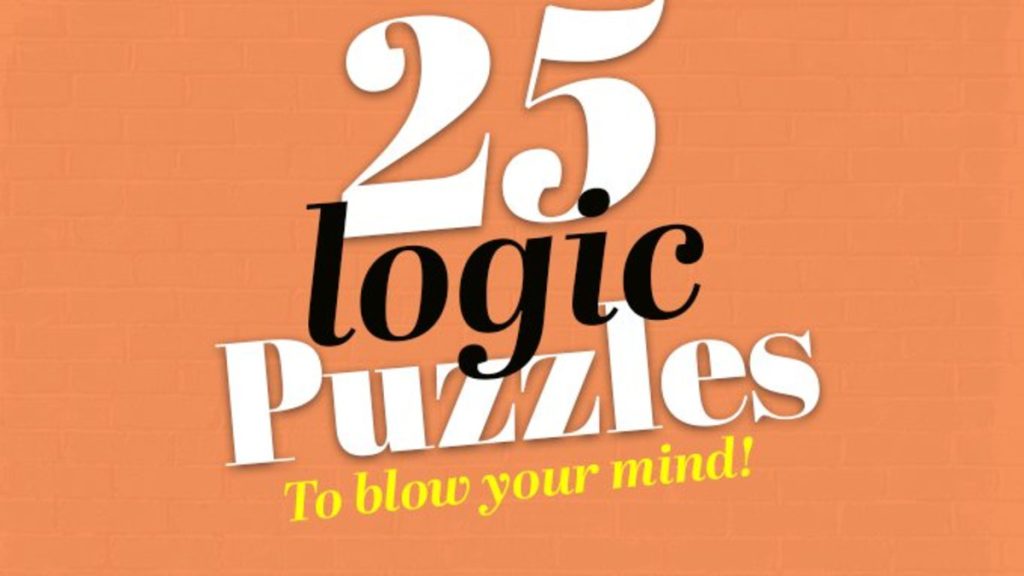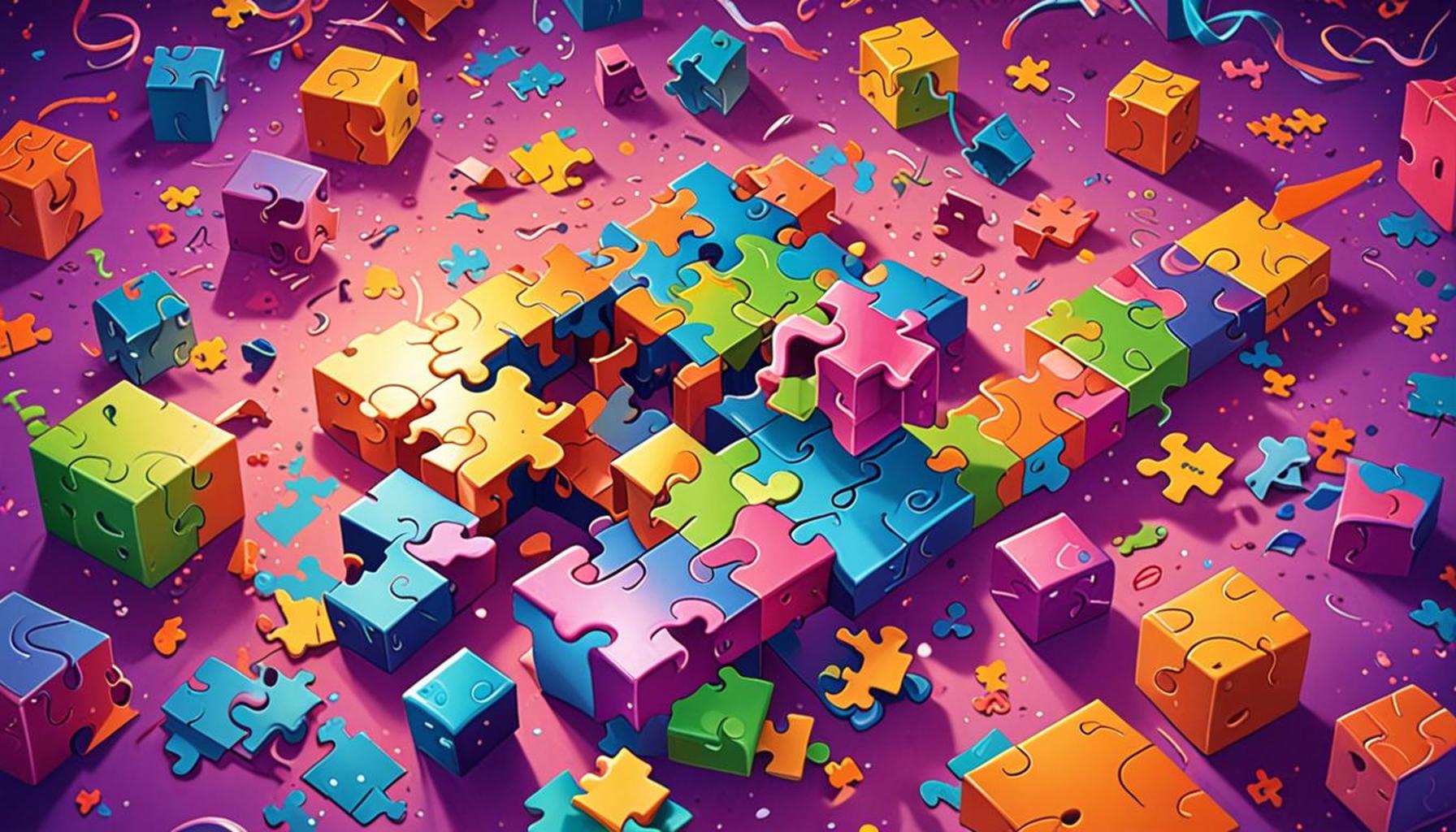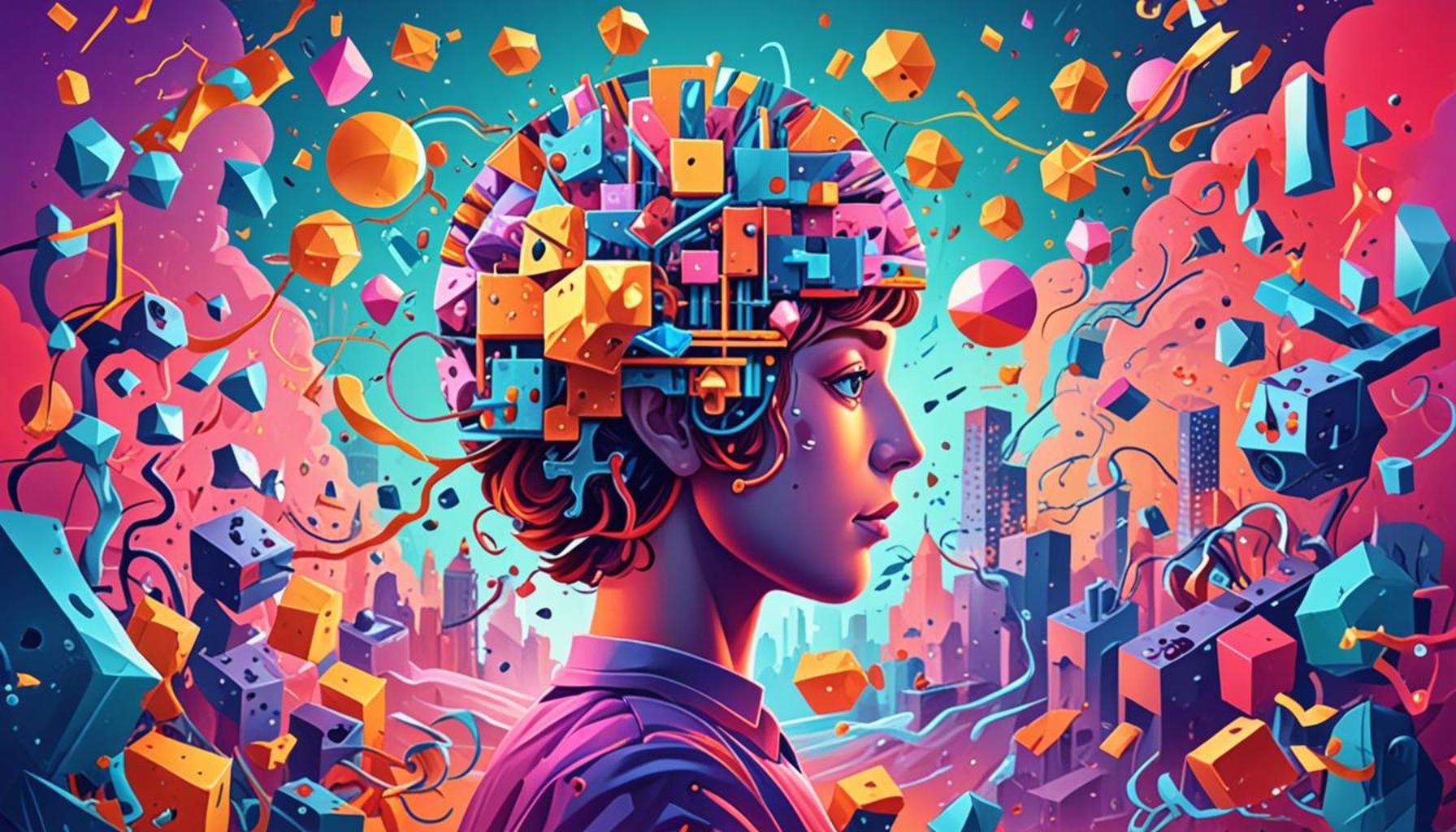The Psychology Behind Logic Games: How Logic Challenges Help Improve Problem Solving

The Impact of Logic Games
Logic games have captivated audiences across various age groups for generations, merging entertainment with intellectual stimulation. These engaging challenges invite players to delve into a world where deduction, reasoning, and strategy reign supreme. As we navigate through complex puzzles and scenarios, our brains are not just entertained; they are actively engaged in a workout that yields numerous cognitive benefits.
So, what specific transformations are occurring within our minds when we tackle these intricate challenges? Extensive research underscores several pivotal advantages that logic games provide:
- Enhanced Critical Thinking: Engaging with logic games requires players to dissect complex situations and analyze multiple perspectives. For instance, a classic like Sudoku demands logical reasoning and foresight, where one must view the grid holistically rather than focusing on individual numbers alone.
- Improved Memory: Regular participation in logic games can significantly strengthen memory recall. Games like crosswords or memory card matching not only boost vocabulary and knowledge but enhance memory retention and retrieval skills through repetitive cognitive engagement.
- Boosted Problem-Solving Skills: Logic puzzles compel players to develop and implement strategies for solving challenges efficiently. For example, a game of chess requires forethought and the ability to anticipate an opponent’s moves, fostering a mindset geared towards strategic decision-making.
Amid our fast-paced digital landscape, where instant gratification is typical, logic games champion a refreshingly deliberate approach to problem-solving. This methodology often yields superior results compared to hasty conclusions derived from surface-level thinking. Critical engagement with these challenges not only sharpens our cognitive skills but also teaches patience — a virtue increasingly scarce in our modern age.
As players immerse themselves in a variety of scenarios, including logic puzzles, escape rooms, and online brain teasers, they unknowingly cultivate skills that are directly transferable to real-world situations. From navigating workplace dilemmas to interpersonal conflicts, the mental connections forged while playing can assist in developing practical solutions. Understanding the intricate relationship between logic games and cognitive enhancement reveals enlightening pathways for educational growth.
Whether enjoyed through traditional mediums or vibrant digital formats, the psychology behind these engaging activities is paramount in molding our cognitive frameworks. Exploring the effects of logic challenges illuminates their immense potential in enhancing not just our leisure time but our daily functional abilities, paving the way for enriched problem-solving and analytical skills in life’s myriad endeavors.

DISCOVER MORE: Click here to enhance your understanding
Cognitive Skills Development through Logic Games
The appeal of logic games extends beyond mere amusement; they stimulate a profound cognitive workout that sharpens essential skills vital for effective problem-solving. Engaging in these activities triggers a series of psychological processes that enhance our mental agility, encouraging the development of vital cognitive skills. By understanding these processes, we can reveal the intricacies of how logic challenges bolster our thinking capabilities.
At the core of logic games lies the necessity to employ critical thinking, a skill that embodies the ability to analyze, evaluate, and synthesize information. When playing games that challenge our reasoning, such as grid-based puzzles and strategic board games, we harness our analytical skills to formulate solutions. This dynamic can be broken down into several key areas:
- Pattern Recognition: Logic games enhance our ability to identify patterns and relationships within information. For example, when solving a logic grid puzzle, players must recognize connections between different variables, which sharpens their overall analytical skills.
- Deductive Reasoning: Engaging with logic challenges promotes deductive reasoning, allowing players to draw conclusions based on given premises. In games like chess, where players must anticipate their opponent’s moves, this skill becomes critical for successful play.
- Spatial Awareness: Many logic games encourage the development of spatial reasoning, essential for tasks requiring visualization. Puzzles that involve arranging or aligning objects challenge players to think in three dimensions, honing their ability to process spatial information effectively.
Research indicates that consistent engagement with logic games can lead to significant improvements in cognitive functioning. For instance, a study published in the journal Neuropsychology found that older adults who regularly played brain games exhibited higher levels of mental flexibility compared to their non-gaming peers. This insight demonstrates that the psychological benefits derived from logic games are not limited to younger audiences, making them an effective cognitive tool for individuals of all ages.
Furthermore, logic games foster a constructive approach toward failure. In the realm of problem-solving, encountering challenges is inevitable. Logic games introduce a safe environment where players can experiment with different strategies without the consequence of real-world failures. This nurturing of resilience encourages individuals to adapt their approaches and view setbacks as opportunities for growth. Ultimately, such experiences lead to a mindset that values persistence and creative thinking.
As players engage with logic games, they build not just theoretical knowledge but practical skills applicable in everyday life situations. From making informed decisions in the workplace to resolving personal conflicts, the enhanced cognitive skills obtained from these games translate seamlessly into the outside world. By examining the psychology behind these games further, we can unlock the gateway to improved problem-solving abilities, enriching our mental toolkit for years to come.
Logic games and challenges serve not just as entertainment, but as powerful tools for enhancing our cognitive faculties. Engaging in these activities taps into several psychological principles that foster critical thinking and problem-solving skills. Firstly, by presenting players with intricate scenarios that require strategic thinking, logic games trigger the cognitive processes associated with analysis, deduction, and induction. For instance, as participants navigate complex puzzles, they are compelled to analyze patterns and derive conclusions based on the available information. This practice strengthens their ability to recognize similar patterns in real-life situations, ultimately sharpening their problem-solving acumen.Additionally, logic challenges often cultivate a sense of resilience and persistence. When faced with setbacks in understanding or completing a task, players learn to approach problems from different angles rather than yielding in frustration. This growth mindset is crucial for real-world problem solving, where perseverance can lead to innovative solutions. Moreover, these games encourage collaborative thinking. Many logic challenges are designed for multiplayer engagement, instigating discussions among participants who bring varied perspectives to the table. This teamwork enhances not only their problem-solving skills but fosters valuable social skills—an essential component in both professional and personal contexts.Incorporating these games into educational curricula can further expand cognitive capabilities not just for children, but also for adults. Workshops and training sessions focusing on logic games are increasingly becoming popular, illustrating a growing recognition of their benefits in enhancing mental flexibility. To illustrate their benefits even further, studies have shown that regular engagement with logic games can lead to higher performance in STEM fields, where problem-solving and critical thinking are paramount. The applications of the psychological principles involved in logic games extend far beyond mere amusement, suggesting a promising avenue for self-improvement and academic growth.This intersection of psychology and cognitive development is where logic games truly shine, making them worthy of exploration for anyone intent on enhancing their problem-solving skills.
DIVE DEEPER: Click here to uncover more
The Role of Emotional Intelligence in Logic Games
While cognitive skills are undeniably important in the realm of logic games, the interplay of emotional intelligence contributes significantly to effective problem-solving as well. Emotional intelligence facilitates a deeper understanding of one’s own emotions and those of others, which can be critical in navigating the complexities of logic challenges. Engaging with these games not only teaches players about logical reasoning but also cultivates emotional awareness that can enhance collaborative problem-solving.
Logic games often require players to work in teams or compete against one another, creating opportunities to detect emotional cues and respond appropriately. This dynamic fosters skills in empathy and social awareness. For instance, in games like Catan or <strong.Taboo, players are not only strategizing their plays but also interpreting the feelings and reactions of their opponents. This requires participants to navigate interpersonal relationships, boosting their ability to manage emotions and build rapport, which in turn facilitates more effective communication.
Research indicates that teams comprising individuals with high emotional intelligence perform better in problem-solving tasks. A 2022 study published in the journal Journal of Applied Psychology demonstrated that groups with emotionally intelligent members displayed superior collaboration skills, leading to better outcomes in complex decision-making scenarios. This evidence suggests that the practice acquired while playing logic games can enhance not just individual problem-solving capabilities but also collective effectiveness in group settings.
Another aspect of emotional intelligence that logic games enhance is self-regulation. Players learn to manage their impulses, whether it’s resisting the urge to make a hasty move or recalibrating their strategies when faced with unforeseen challenges. Games that demand a level of patience, such as <strong.Sudoku or <strong.Rubic's Cube, compel players to spend time analyzing the situation, leading them to practice self-discipline. Developing this trait is not only beneficial during gameplay; it translates directly to real-life situations that require critical thinking and measured responses.
Enhancing Creative Problem-Solving with Logic Games
Moreover, logic games serve as a catalyst for creativity. The act of solving a complex puzzle or navigating an intricate game scenario often involves out-of-the-box thinking and imaginative approaches to challenges. The psychological aspects of creativity are intertwined with logic games, as they encourage divergent thinking—the ability to generate varied ideas and potential solutions. Players often find themselves brainstorming unconventional strategies to solve a puzzle, nurturing a mindset that is adaptable and innovative.
For example, games like <strong.Magic: The Gathering compel players to think creatively about deck construction and strategy execution. The variability in every match requires players to devise multiple approaches to outsmart opponents. Studies suggest that consistent engagement in activities promoting divergent thinking can lead to enhanced creativity, with a direct impact on one’s capacity to tackle multifaceted issues.
The development of creativity through logic games is not just about playful engagement; it also has practical implications. A 2021 survey by the American Psychological Association highlighted that individuals who practice creative problem-solving techniques are better prepared to handle complicated tasks in the workplace, demonstrating a strong connection between engagement in logic games and improved job performance.
Ultimately, the value of logic games extends beyond entertainment. They are a multifaceted tool that enhances cognitive and emotional skills, creativity, and resilience. By exploring the psychological components at play, we gain a greater appreciation of how these games equip players with essential tools for effective problem-solving in various aspects of their lives.
DISCOVER MORE: Click here to learn how puzzles can help you unwind
Conclusion
In a world where problem-solving skills are increasingly vital, logic games emerge as a powerful tool for honing both cognitive and emotional capabilities. The psychological insights derived from engaging with these games reveal that they do more than just entertain; they serve as a training ground for sharpening analytical skills, enhancing emotional intelligence, and fostering creativity. Players learn to navigate intricate challenges, not only developing structured thinking but also acquiring adaptive strategies that are crucial in real-world scenarios.
The multilayered benefits of logic games extend beyond mere enjoyment. From enhancing teamwork and communication through emotional awareness to stimulating innovative solutions via creative thinking, the psychology behind these games underscores their role in preparing individuals for complex situations. For instance, the collaborative dynamics present in games like Catan facilitate an improved capacity for empathy, which translates into better interpersonal interactions in diverse environments, including the workplace.
Ultimately, understanding the psychology behind logic games allows us to recognize their fundamental contributions to personal development. Players who immerse themselves in these challenges emerge better equipped to tackle the multifaceted problems they encounter in daily life, workplace environments, and social interactions. As the landscape of challenges continues to evolve, incorporating logic games into our routines may well be a key strategy for fostering more adept problem solvers in our communities. By embracing these psychological principles, we can leverage the power of logic games to enrich our problem-solving capabilities and enhance overall resilience.


